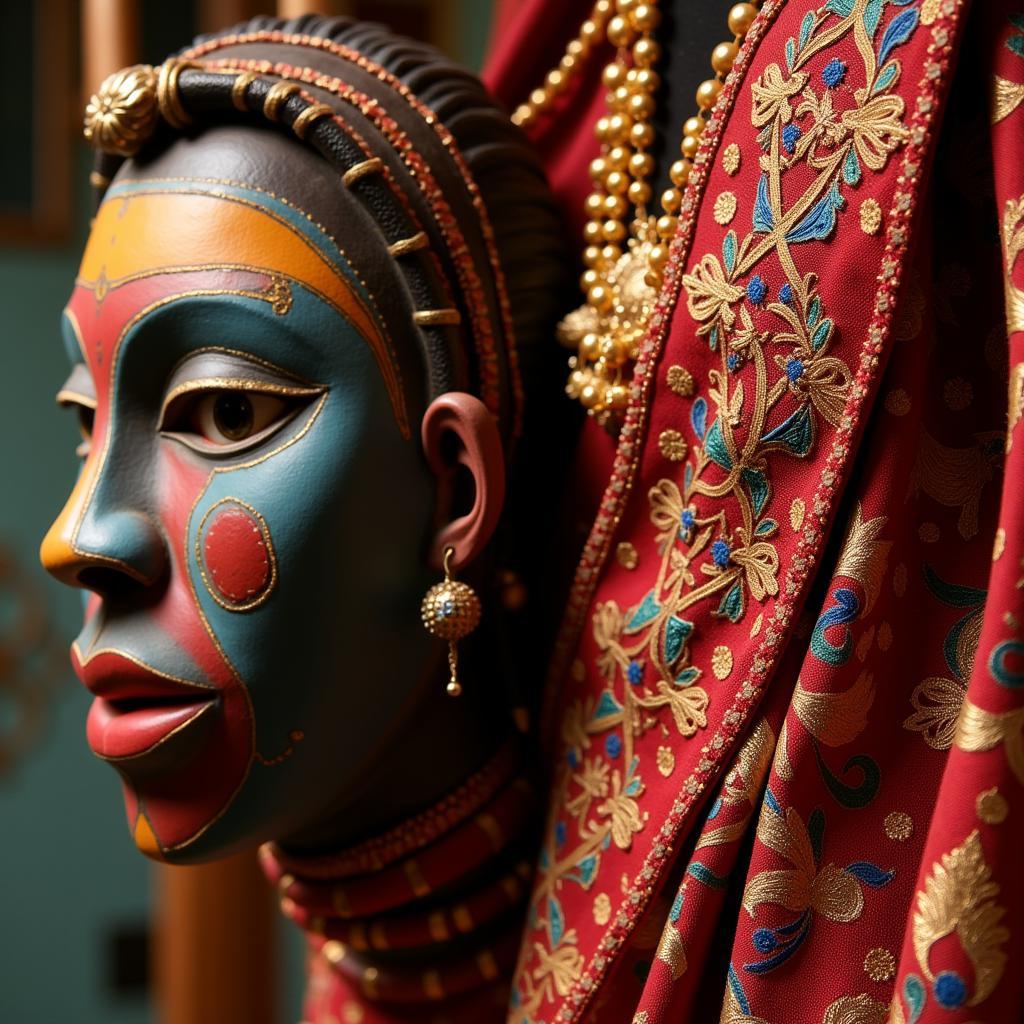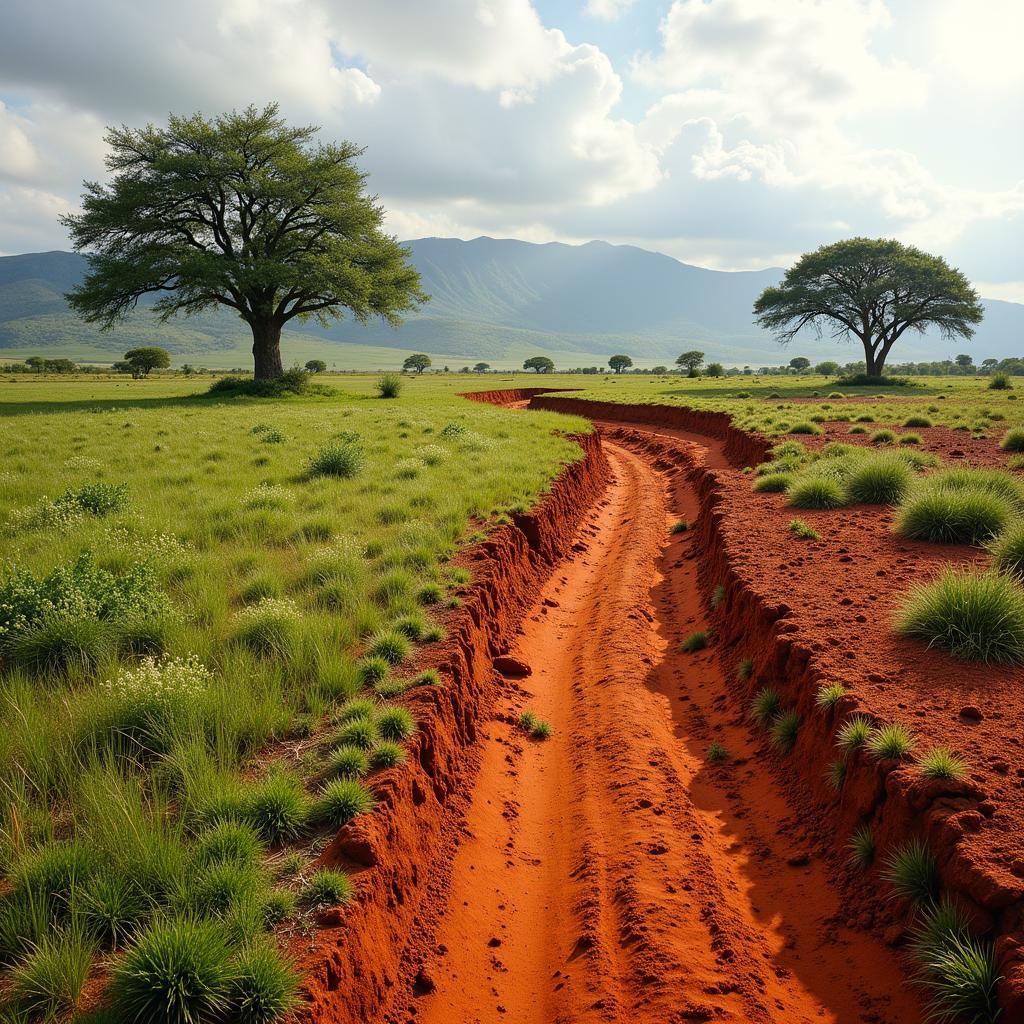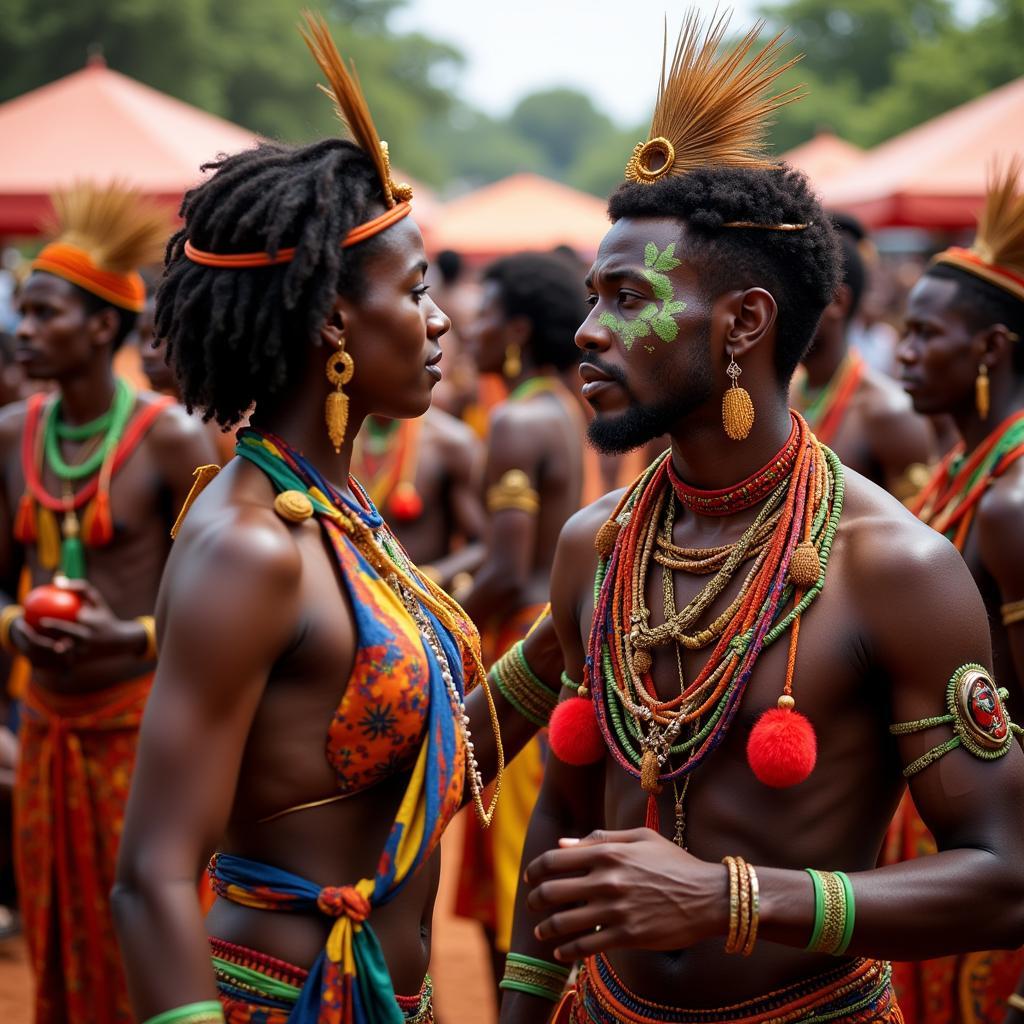Exploring the Vibrant Sounds of African Dance Music 2017
African dance music in 2017 continued its evolution, blending traditional rhythms with modern electronic influences. From the pulsating beats of Afrobeat to the infectious melodies of Coupé-Décalé, the year showcased a diverse range of sounds that captivated audiences worldwide. This exploration delves into the vibrant landscape of African dance music in 2017, highlighting key artists, genres, and cultural influences.
It was a year where established stars continued to shine and new talents emerged, pushing the boundaries of African music. Nigerian artists like Wizkid and Davido solidified their global presence, while South African house music continued its infectious spread. 2017 also saw a rise in collaborations between African artists and international musicians, further amplifying the reach of these captivating rhythms. This cross-cultural exchange introduced African dance music to new audiences, fostering appreciation for its unique energy and vibrancy. Check out some African dance videos 2017 to get a feel for the scene.
The Rise of Afrobeat in 2017
Afrobeat, a genre with roots in Nigeria and Ghana, experienced a surge in popularity in 2017. Its infectious blend of polyrhythms, horns, and soulful vocals resonated with audiences globally. Artists like Wizkid and Davido championed the genre, releasing chart-topping hits that cemented Afrobeat’s position in the mainstream music scene.
Key Influences Shaping Afrobeat in 2017
Several factors contributed to Afrobeat’s prominence in 2017. The increasing accessibility of music streaming services played a crucial role, allowing listeners worldwide to discover and engage with African artists. Additionally, collaborations with international musicians exposed Afrobeat to new audiences, further fueling its growth.
Exploring Other Genres of African Dance Music in 2017
Beyond Afrobeat, 2017 showcased the diversity of African dance music. Genres like Coupé-Décalé from Ivory Coast, Kwaito from South Africa, and Bongo Flava from Tanzania continued to evolve and captivate listeners with their distinct rhythms and styles. These diverse musical landscapes reflect the cultural richness of the African continent. You can explore more about African styles here.
Coupé-Décalé’s Energetic Rhythms
Coupé-Décalé, known for its fast-paced rhythms and energetic dance moves, maintained its popularity in 2017. Artists like DJ Arafat continued to push the boundaries of the genre, incorporating electronic influences and collaborating with international musicians.
The Impact of African Dance Music on Global Culture
African dance music’s influence extended beyond the music charts in 2017. Its infectious rhythms and vibrant energy permeated various aspects of popular culture, from fashion to film. The use of African dance music in international films and commercials further solidified its global presence. For example, some African cinema themes started incorporating these vibrant rhythms.
“African dance music’s ability to transcend borders and connect people through rhythm is a testament to its power,” says Dr. Adeola Oni, ethnomusicologist. “It’s not just about the music; it’s about the shared experience and the cultural exchange it fosters.”
In conclusion, African dance music in 2017 was a vibrant tapestry of sounds, rhythms, and cultural influences. From the global rise of Afrobeat to the continued evolution of other genres, the year showcased the rich musical landscape of the African continent. This vibrant scene captivated audiences worldwide and left an indelible mark on popular culture. For those interested in African development, information on the African Development Bank Summit 2017 Venue might also be of interest.
FAQ
-
What are some popular African dance music genres in 2017?
- Afrobeat, Coupé-Décalé, Kwaito, Bongo Flava.
-
Who are some key artists in African dance music in 2017?
- Wizkid, Davido, DJ Arafat.
-
How did streaming services impact African dance music in 2017?
- Increased accessibility and global reach.
-
What are some cultural influences on African dance music?
- Traditional rhythms, instruments, and storytelling.
-
How did African dance music influence global culture in 2017?
- Impact on fashion, film, and commercial music.
More questions related to African Cameroonian music can be explored on our website. For further assistance, contact us at +255768904061, [email protected], or visit us at Mbarali DC Mawindi, Kangaga, Tanzania. Our customer service team is available 24/7.


